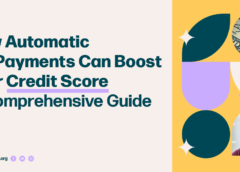
Debt can feel like a heavy burden, but with the right strategies and a committed mindset, you can pay off your debt more quickly than you might think. Here are some effective steps to help you tackle your debt head-on and achieve financial freedom.
1. Assess Your Debt
Start by listing all your debts, including credit card balances, student loans, car loans, and any other obligations. Note the interest rates, minimum monthly payments, and outstanding balances for each debt. This will give you a clear picture of your total debt and help you prioritize which debts to tackle first.
2. Create a Budget
A well-structured budget is essential for managing your finances and allocating extra funds towards debt repayment. Track your income and expenses to identify areas where you can cut back. Allocate a portion of your budget specifically for paying off debt.
3. Adopt the Snowball or Avalanche Method
There are two popular strategies for paying off debt quickly: the Snowball Method and the Avalanche Method.
- Snowball Method: Focus on paying off your smallest debts first while making minimum payments on larger debts. As each small debt is paid off, roll the amount you were paying into the next smallest debt. This method can provide quick wins and boost your motivation.
- Avalanche Method: Focus on paying off debts with the highest interest rates first while making minimum payments on other debts. This method can save you more money in the long run by reducing the amount of interest you pay.
4. Increase Your Income
Look for ways to increase your income to pay off debt faster. This could include taking on a part-time job, freelancing, selling items you no longer need, or monetizing a hobby. Any extra income can be directly applied to your debt.
5. Cut Unnecessary Expenses
Review your spending habits and cut back on non-essential expenses. This might include dining out less often, canceling subscription services you don’t use, or finding cheaper alternatives for entertainment. Redirect the money saved towards your debt repayment.
6. Use Windfalls Wisely
If you receive unexpected money, such as a tax refund, bonus, or gift, use it to pay down your debt. While it might be tempting to spend this money, applying it to your debt can significantly speed up your repayment process.
7. Negotiate Lower Interest Rates
Contact your creditors to negotiate lower interest rates. A lower interest rate can reduce the amount you pay in interest over time and help you pay off your debt faster. Be prepared to explain your financial situation and your commitment to paying off your debt.
8. Consolidate Your Debt
Consider consolidating your debt into a single loan with a lower interest rate. Debt consolidation can simplify your payments and potentially reduce your interest costs. Options include balance transfer credit cards, personal loans, or home equity loans.
9. Avoid Accumulating More Debt
While paying off your existing debt, avoid taking on new debt. This means not using credit cards for new purchases and being mindful of taking out new loans. Focus on living within your means and sticking to your budget.
10. Stay Motivated and Consistent
Paying off debt quickly requires discipline and persistence. Stay motivated by setting short-term goals and celebrating small victories along the way. Keep track of your progress and remind yourself of the benefits of becoming debt-free.
Conclusion
Paying off debt quickly is a challenging but achievable goal. By assessing your debt, creating a budget, and implementing effective repayment strategies, you can take control of your finances and work towards a debt-free future. Remember, the key is to stay committed and make consistent progress, no matter how small. With determination and the right approach, you can achieve financial freedom and peace of mind.




